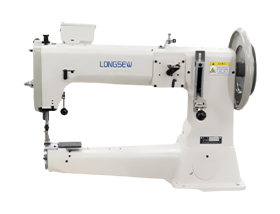Industrial CNC Sewing Machine for Precision Fabrication
Industrial CNC sewing machines have revolutionized the textile and garment industries, enhancing productivity and precision in garment manufacturing. Unlike traditional sewing machines that require skilled operators to guide fabric, CNC (Computer Numerical Control) machines automate the sewing process, allowing for high-speed, consistent results.
.
Additionally, CNC sewing machines are designed to handle large volumes of fabric, making them ideal for mass production environments. These machines can operate continuously, reducing the time needed to complete large orders. This efficiency leads to lower production costs, which is essential for businesses looking to maintain profitability while meeting consumer demand.
industrial cnc sewing machine

Moreover, the use of CNC technology in sewing machines contributes to improved product quality. With consistent tension and speed control, the likelihood of human error is significantly reduced. This results in fewer defects, lower material waste, and a higher overall quality of the finished products. Manufacturers can enjoy the benefits of increased customer satisfaction as their products consistently meet or exceed expectations.
Another critical aspect of industrial CNC sewing machines is their versatility. They can be used for a wide range of applications, from clothing production to automotive upholstery and even medical textiles. The ability to easily switch between different stitches and fabrics makes them an invaluable asset for companies looking to diversify their offerings.
In conclusion, industrial CNC sewing machines represent a significant advancement in the textile manufacturing sector. Their ability to automate complex sewing tasks, increase production efficiency, and enhance product quality makes them a vital tool for modern garment manufacturers. As technology continues to evolve, we can expect further innovations in CNC sewing machines that will drive the industry forward, ensuring that businesses can meet the ever-changing demands of the market while delivering exceptional products.
-
Industrial Cylinder Arm Sewing Machine: Revolutionizing Heavy-Duty SewingNewsJul.28,2025
-
Cylinder Arm Sewing Machine: Perfect for Special Sewing ApplicationsNewsJul.28,2025
-
Cylinder Bed Sewing Machine: Essential for Sewing Complex MaterialsNewsJul.28,2025
-
Heavy Duty Sewing Machine: The Essential Tool for Industrial ApplicationsNewsJul.28,2025
-
Computerized Pattern Sewing Machine: Revolutionizing Precision StitchingNewsJul.28,2025
-
Heavy Duty Industrial Sewing Machine: Power Meets PrecisionNewsJul.28,2025
-
Leather Sewing Machine: The Industrial Standard for Tough MaterialsNewsJul.18,2025





























